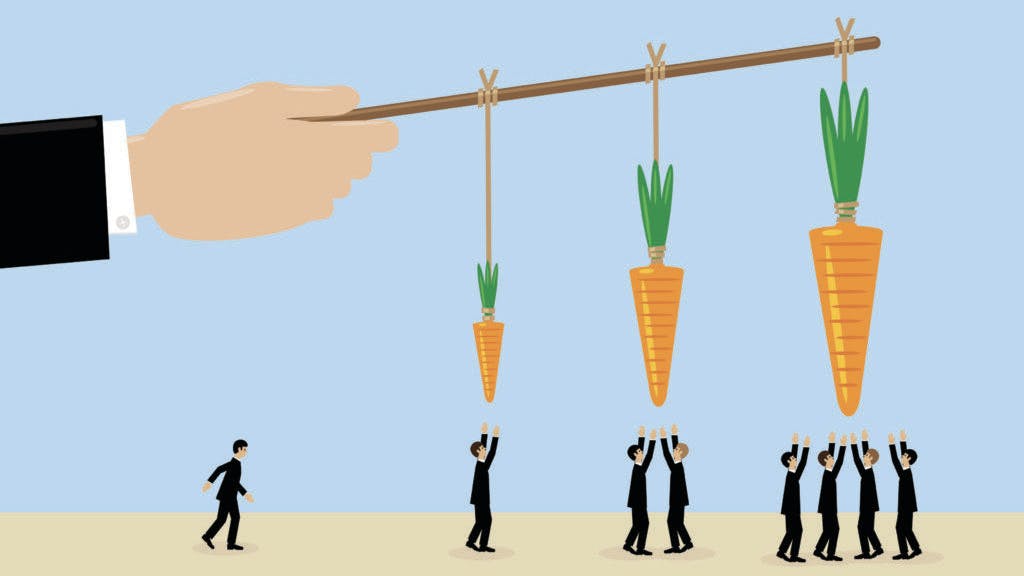
Performance Review Q&A and Videos
About Performance Review
What's the difference between a low performer software engineer and a high performer?
Forward Deployed Software Engineer at Palantir
Some additional questions:
- Does it vary between big companies and small companies?
- Do you need to work a lot to be a high performer?
Show more
Posted 3 years ago
22.3K Views
7 Comments
Learn About Performance Review
A performance review is used by a company gauge an employee’s work performance and contributions during a certain period of time. In the software engineering world, the reviews provide a comprehensive overview of an engineer’s accomplishments and areas of improvement over a specific period.
Performance reviews serve as a platform for acknowledging an engineer’s contributions and achievements. Positive feedback during a performance review can lead to recognition, promotion, and new growth opportunities within a company.
Performance reviews also highlight areas where performance can be improved. Constructive feedback helps engineers identify their strengths and weaknesses, which will pave the way for professional and career growth.
Performance reviews can contribute to fostering a positive team culture. By recognizing and addressing individual contributions, team members can understand what steps they need to take to be rewarded because they have a model to follow.
To maximize performance reviews, software engineers should actively prepare by reflecting on their achievements and goals accomplished during the performance review period. This preparation ensures a comprehensive discussion that you can have with your manager.
You should have also been receiving ongoing feedback throughout the entire performance review cycle from your manager and peers. This creates a continuous improvement cycle and ensures there are no surprises during the formal review.
You should effectively communicate any achievements during this time, which can include improvements made to any software engineering processes or to team culture.
Performance reviews are pivotal in your software engineer carer because they provide opportunities for recognition, growth, and professional development. By addressing feedback throughout the year, you will be able to navigate the performance review cycle with confidence.
Show more
Explore Jobs By LevelEntry-Level Software Engineer JobsMid-Level Software Engineer JobsSenior Software Engineer JobsStaff Software Engineer Jobs
Explore TrendingLayoffsPerformance Improvement PlanSystem DesignInterpersonal CommunicationTech Lead
Explore Job InternshipsSoftware Engineering InternshipsGoogle InternshipsMeta InternshipsAmazon InternshipsApple InternshipsTesla InternshipsMicrosoft Internships
![[Case Study] Building A Meta Internal Tool To Empower An Entire Org: Staff Promotion Story](/_next/image/?url=https%3A%2F%2Ffirebasestorage.googleapis.com%2Fv0%2Fb%2Ftech-career-growth.appspot.com%2Fo%2Fthumbnails%252FTaroPremiumSessions%252Fpremium_session_2_updated.png%3Falt%3Dmedia%26token%3D1e1432b5-b1f2-4b29-be27-8d0bab06cca2&w=1920&q=75)


![Get The Rating You Deserve [Part 1] - Course Outline](/_next/image/?url=https%3A%2F%2Ffirebasestorage.googleapis.com%2Fv0%2Fb%2Ftech-career-growth.appspot.com%2Fo%2Flesson_thumbnails%252F1734390591-image.jpg%3Falt%3Dmedia%26token%3D6daea547-cce1-4768-a1dd-12d4ded9d3b2&w=1920&q=75)

![[Masterclass] How To Navigate Your Performance Review In Tech](/_next/image/?url=https%3A%2F%2Ffirebasestorage.googleapis.com%2Fv0%2Fb%2Ftech-career-growth.appspot.com%2Fo%2Fthumbnails%252Fperf_review_full_session_thumbnail.jpeg%3Falt%3Dmedia%26token%3Dec697d48-3cae-4753-a1b4-eaac9d6f0006&w=1920&q=75)
![[Masterclass] How To Survive Tech Industry Layoffs](/_next/image/?url=https%3A%2F%2Ffirebasestorage.googleapis.com%2Fv0%2Fb%2Ftech-career-growth.appspot.com%2Fo%2FTechCareerGrowthSessions%252F2023_01_14_surviving_layoffs_thumbnail.png%3Falt%3Dmedia%26token%3Dc3705ac4-3e1e-43fb-9729-e57c159853af&w=1920&q=75)



![[Timeless Career Advice] Intro & Agenda](/_next/image/?url=https%3A%2F%2Ffirebasestorage.googleapis.com%2Fv0%2Fb%2Ftech-career-growth.appspot.com%2Fo%2Fthumbnails%252F1719374159-01-1.png%3Falt%3Dmedia%26token%3D9a0782bc-93b6-43cf-b3ea-7742e5f78b05&w=1920&q=75)
![[Masterclass] How To Work Better With Your Engineering Manager](/_next/image/?url=https%3A%2F%2Ffirebasestorage.googleapis.com%2Fv0%2Fb%2Ftech-career-growth.appspot.com%2Fo%2Fevent_images%252F1693218141-image.jpg%3Falt%3Dmedia%26token%3Ded119d17-7aab-4704-9a26-49ca7080ba23&w=1920&q=75)
